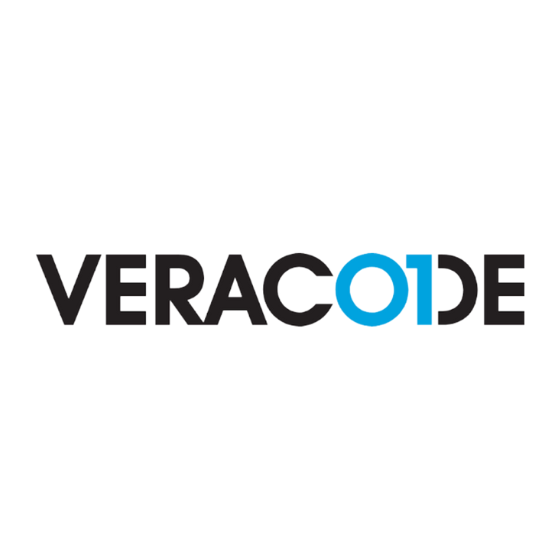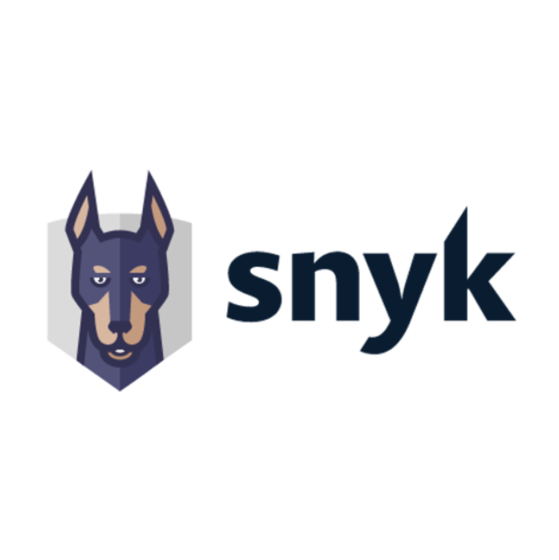10 Best Code Review Tools Shortlist
Here's my pick of the 10 best software from the 20 tools reviewed.
Our one-on-one guidance will help you find the perfect fit.
Code review tools help development teams give feedback, catch bugs, and improve code quality without slowing everything down.
Teams usually start looking for a better tool when reviews take too long, comments get lost, or problems are caught too late in the release process. It’s easy for reviews to become a bottleneck when the process feels unstructured or spread across too many places.
I’ve helped teams adopt and refine code review tools that actually support their workflow, from fast-moving startups to more structured engineering orgs. This guide is built on that experience to help you choose a tool that improves collaboration and helps your team ship better code with less stress.
Why Trust Our Software Reviews?
We’ve been testing and reviewing software since 2023. As IT and data specialists ourselves, we know how critical and difficult it is to make the right decision when selecting software.
We invest in deep research to help our audience make better software purchasing decisions. We’ve tested more than 2,000 tools for different IT use cases and written over 1,000 comprehensive software reviews. Learn how we stay transparent & our review methodology.
Best Code Review Tools Summary
| Tool | Best For | Trial Info | Price | ||
|---|---|---|---|---|---|
| 1 | Best repository | 30-day free trial available | From $4/user/month | Website | |
| 2 | Best for teams working on Jira | Free plan available | From $3.30/user/month | Website | |
| 3 | Best for centralization | 30-day free trial | From $8/user/month | Website | |
| 4 | Best open-source option | Free plan available | From $20/user/month | Website | |
| 5 | Best for companies with self-hosted development platforms | Free plan available | From $19/user/month | Website | |
| 6 | Best security review features | Free demo available | Pricing upon request | Website | |
| 7 | Best for DevOps | Free demo available | From $6/user/month | Website | |
| 8 | Best for teams developing on AWS | Free tier available | Pricing upon request | Website | |
| 9 | Best dependency management | Free plan available | From $25/product/month | Website | |
| 10 | Best for code health insights | Free trial + demo available | From €18/active author/month (billed annually) | Website |
-

Docker
Visit WebsiteThis is an aggregated rating for this tool including ratings from Crozdesk users and ratings from other sites.4.6 -

Pulumi
Visit WebsiteThis is an aggregated rating for this tool including ratings from Crozdesk users and ratings from other sites.4.8 -

GitHub Actions
Visit Website
Best Code Review Tools Reviews
These are my favorite code review tools, along with where I’ve found they excel according to my tests. I’ve also included their strengths and weaknesses, as well as a separate section on how I evaluated them.
GitHub is the most popular Git repository host, offering cloud-based services for development teams of all sizes.
Why I Picked GitHub: When I find an issue in a codebase that I can correct, I use pull requests on GitHub to add suggested code and go over it with my fellow team members. When I initiate one, it lets me compare the branch to the base so everyone can see what’s different and, if there’s a consensus, proceed to merge.
GitHub Standout Features and Integrations:
Features I like using for code review in GitHub include the option to initiate review requests. I can specify someone I want to do it or let GitHub suggest one from analyzing historical blame data.
GitHub also has protected branches where only authorized team members can merge code after review, which is useful when working with new developers or ones with little Git experience.
Integrations are pre-built for Codefactor, Codacy, Codecov, Coveralls, Slack, Microsoft Teams, Terraform, Jira, Visual Studio Code, and Visual Studio.
Pros and cons
Pros:
- Most experienced developers are already familiar with it
- Several integrations
- Robust versioning system
Cons:
- Restrictive free plan
- Relies heavily on the CLI
Bitbucket is a cloud-native Git solution from Atlassian, the company behind products like Jira, Confluence, and Trello, that powers CI/CD workflows.
Why I Picked Bitbucket: Bitbucket won me over with its native Jira integration that simplified code review by creating a bridge between the repository and the platform where the team coordinated operations. It contextualized diffs and comments against the code, and it gave me the option to create issues and assign tasks in Jira from a pull request.
Bitbucket Standout Features and Integrations:
Features I liked while using Bitbucket with Jira include the single-page view that puts my repo in the same window as my workspaces, so I didn’t have to keep going back and forth between the code and team messages. I also liked that I could add checklists to my pull requests, as I would in a regular Jira ticket, and have reviewers check them off before requests get merged.
Integrations, beyond the native Jira, are pre-built for Slack, Buddybuild, CircleCI, Cider Security, CloudCannon, Codeship, Planio, Snyk, Testim.io, and Visual Studio.
Pros and cons
Pros:
- Git functionality
- Decent CI/CD and DevOps workflow support
- Enhances collaboration with native Jira integration
Cons:
- Periodic stability issues
- Few integrations and limited functionality with non-Atlassian products
Rhodecode is an open-source code management platform that hosts everything behind a firewall for extra security.
Why I Picked Rhodecode: I chose Rhodecode because it provides multiple options for code repositories and erosion control, with support for Git, Mercurial, and Subversion (SVN). You can bring all of them into one workspace and create common workflows that translate across each one, making collaboration easy without needing to switch existing systems.
Rhodecode Standout Features and Integrations:
Features I liked in Rhodecode for centralization include the ability to migrate from SVN to Git, for example, if you want offline functionality or higher speeds, and have the system rescan and remap the full repository for you. It also provides permission management functions for your servers from behind a firewall to ensure security across different environments.
Integrations are pre-built for Jira, Jenkins, TeamCity, Travis CI, Trello, GitHub, Bitbucket, Slack, Confluence, and Redmine.
Pros and cons
Pros:
- Provides full-text searches for code
- Robust centralization features
- Supports multiple repo and version control systems
Cons:
- UI isn’t too user-friendly
- Sluggish performance
Codebeat is an open-source automated code analysis and review tool with dedicated support for some of the most popular web and mobile programming languages.
Why I Picked Codebeat: As I’ve stated above, Codebeat provides dedicated, built-in support for specific programming languages that are commonly used for mobile and web development. Currently, it supports automated code review for Javascript, Python, Go, Typescript, Ruby, Java, Kotlin, Swift, and Objective-C, with six more languages in beta.
Codebeat Standout Features and Integrations:
Features that stood out to me while I was testing Codebeat include the GPA feature that scans the code in a namespace for various violations, applies penalties if necessary, and gives you a score out of 4. It also provides light project management features with functions like access levels that let you work better with both internal team members as well as open-source contributors.
Integrations are pre-built for GitHub, GitLab, Bitbucket, Slack, and HipChat.
Pros and cons
Pros:
- Detailed code review reports with GPA scoring system
- Easy to set up
- Provides automated code reviews
Cons:
- Limited integrations
- Few languages fully supported
Gitea is an open-source self-hosted software development solution that provides Git hosting, code review CI/CD pipelines, and package management.
Why I Picked Gitea: I chose Gitea because it’s written in Go, which makes it fast and lightweight enough to be relatively manageable on self-hosted development platforms. The documentation says it needs 1GB of memory and a dual-core processor for small projects, and this tracks with my tests which I carried out on a Raspberry Pi. As far as self-hosted Git solutions go, I’d say it’s more than workable.
Gitea Standout Features and Integrations:
Features I liked in Gitea include Actions, an integrated CI/CD pipeline that allowed me to create custom workflows with YAML. This made it easy to incorporate a dedicated step for code review in the software development lifecycle. Gitea also supports more than 20 public and private package managers, including Chef, PyPl, Maven, and npm, that I could use to set things up in my self-hosted environment.
Integrations are pre-built for Jenkins, Bitbucket, GitLab, GitHub, Visual Studio Code, Docker, YouTrack, and Agola.
Pros and cons
Pros:
- Built-in CI/CD pipeline
- Highly configurable
- Lightweight
Cons:
- Managed option is expensive
- Self-hosted option requires dedicated maintenance teams
Veracode is a digital security company that provides a variety of products and services for software developers, platforms, and workflows.
Why I Picked Veracode: I chose Veracode because of its penetration testing as a service (PTaaS) offering that lets you get pentest experts to check how resilient your system is against attacks. These teams are useful for catching vulnerabilities that might go unnoticed with an automated code review.
Veracode Standout Features and Integrations:
Features I liked for doing security-centric code reviews in Veracode include the static end-to-end scans that check pipelines, policies, and IDEs for vulnerabilities. For the number of security scans that Veracode runs, I appreciated that I always got a report that presented vulnerabilities by how critical they were so I could prioritize fixes by severity.
I also liked Veracode Security Labs, a tool that I used to strengthen my grasp of cybersecurity as I coded with live exercises, sandboxed demonstrations of exploitations, and gamified systems, all with progress reports.
Integrations are pre-built for Jira, CircleCI, Eclipse, Visual Studio Code, IntelliJ IDEA, Visual Studio, Azure DevOps, Bitbucket, Bamboo, and Docker.
Pros and cons
Pros:
- Security Labs helps you learn security best practices on the fly
- Provides detailed reports and logs
- Robust security features
Cons:
- Scans take long to complete
- Sometimes flags false positives
Azure DevOps, formerly called Visual Studio Teams Services, is a collection of tools for CI/CD, agile, and DevOps development workflows from Microsoft.
Why I Picked Azure DevOps: Azure DevOps provides a suite of tools that streamline cross-department collaboration, tools I believe are good for involving all major stakeholders in code review. Most of these tools can also be integrated into CI/CD pipelines; at the center of everything is Azure Repos, the Git-based tool that I used to host the code and share it with team members.
Azure DevOps Standout Features and Integrations:
Features I liked for DevOps with Azure DevOps include Artifacts, a package management tool that supports Python, npm, Maven, and NuGet from public and private sources. With Boards, a project management tool that connects directly to Repos, I could track code review feedback and requests from my team members.
Integrations are pre-built for Docker, Jenkins, Slack, GitHub, Jira, Visual Studio Code, IntelliJ IDEA, GitLab, Xcode, and ServiceNow.
Pros and cons
Pros:
- Free for small teams
- Robust DevOps and collaboration features
- Provides CI/CD pipelines
Cons:
- Individual tools aren’t as robust as standalone alternatives
- Opinionated design means limited customizability
AWS CodeCommit is a fully managed platform that hosts Git repositories for source control and security.
Why I Picked AWS CodeCommit: CodeCommit leverages several features native to AWS that you can use for code reviews. For example, I could control access to the code itself by user, time, and location using AWS Identity and Access Management (IAM) and Key Management Service (KMS).
AWS CodeCommit Standout Features and Integrations:
Features that made me recommend CodeCommit for companies working within AWS include the ability to create repos using whatever method you prefer from AWS SDKs, CLI, or the Management Console. You can also monitor the repositories closely when they’re live with CloudTrail and CloudWatch, both of which track several metrics and give you detailed status logs.
Integrations are native for other AWS products and services, including S3, KMS, IAM, DynamoDB, CloudTrail, CloudWatch, SDK, Management Console, CLI, and SNS.
Pros and cons
Pros:
- Robust user access control
- Native integrations for AWS products and services
- Easy to setup on AWS
Cons:
- Git functionality not as refined as alternatives like GitHub
- Limited non-AWS integrations
Snyk is a developer security platform that provides software composition analysis (SCA), infrastructure-as-code (IAC), static applications security testing (SAST), and containerization functionality.
Why I Picked Snyk: Snyk made it easy for me to keep track of both direct and transitive dependencies, so whenever I was doing code review, I knew how far out any changes were going to ripple. It also analyzed my projects, then located and notified me of vulnerable dependencies so I could get out ahead of potential disasters.
Snyk Standout Features and Integrations:
Features I liked in Snyk include the fact that it reviews code and provides a report that ranks the risks it finds in order of severity, so it’s easier to prioritize fixes if you’re not sure where to start.
Whenever it finds a vulnerability, it also provides clear remediation advice, whether you’re working within a CLI or IDE. For the latter, it works on some of the most popular IDEs, including Visual Studio, VS Code, and every option from JetBrains, making it easy for most developers to include it in their workstations.
Integrations are pre-built for Visual Studio, Visual Studio Code, Jenkins, CircleCI, RubyMine, WebStorm, IntelliJ IDEA, PyCharm, Eclipse, and Bitbucket.
Pros and cons
Pros:
- Integrates with popular IDEs
- Robust security features
- Strong dependency management
Cons:
- Security is sometimes aggressive and might flag false positives
- Expensive
CodeScene is a code analysis and visualization tool designed to help development teams improve code quality, understand team dynamics, and enhance software delivery.
Why I Picked CodeScene: It offers a unique code health metric that aggregates various factors—such as code complexity and code smells—to assign a maintainability score to your codebase. This helps you pinpoint areas that may require attention, allowing you to prioritize refactoring efforts effectively. I also like CodeScene's ability to analyze team dynamics. The tool visualizes how individual developers and teams interact with the codebase, highlighting knowledge distribution and potential coordination bottlenecks.
CodeScene Standout Features and Integrations:
Features include hotspot analysis, which identifies frequently modified areas of your code that may need attention. Additionally, behavioral code analysis considers the human aspects of coding, offering a more holistic view of your codebase. CodeScene also provides automated code reviews by integrating with pull requests, ensuring that code quality is maintained without manual intervention.
Integrations include Jira, Trello, Azure DevOps, GitHub Issues, GitLab, YouTrack, Slack, and REST API.
Pros and cons
Pros:
- Offers visualizations that make complex data easy to understand
- Provides actionable insights into code quality and team dynamics
- Helps identify and prioritize technical debt effectively
Cons:
- Most integrations are only available on higher-tier plans
- Configuration can be complex for certain setups
Other Code Review Software Options
I evaluated several tools for this article and found a couple that were good enough to include if you still feel like you need something different from what’s in the main list:
- GitLab
Reporting features
- JetBrains Space
Organizational features
- Collaborator
Collaboration features
- Gogs
Golang review tool
- Peer Review for Trac
Trac code review plugin
- JArchitect
For Java review
- Codegrip
Rule management
- Codestriker
Notification system
- Codefactor
Issue tracking features
- Review Board
Document review
Related Software Reviews
If you still haven't found what you're looking for here, check out these alternative tools that we've tested and evaluated.
- Network Monitoring Software
- Server Monitoring Software
- SD-Wan Solutions
- Infrastructure Monitoring Tools
- Packet Sniffer
- Application Monitoring Tools
Code Review Tools Selection Criteria
When selecting the best code review tools to include in this list, I considered common buyer needs and pain points like improving code quality and speeding up the review process. I also used the following framework to keep my evaluation structured and fair:
Core Functionality (25% of total score)
To be considered for inclusion in this list, each solution had to fulfill these common use cases:
- Provide inline commenting
- Track changes and version history
- Support multiple programming languages
- Allow for real-time collaboration
- Automate code quality checks
Additional Standout Features (25% of total score)
To help further narrow down the competition, I also looked for unique features, such as:
- AI-assisted code suggestions
- Security vulnerability scanning
- Integration with CI/CD pipelines
- Peer review assignment automation
- Customizable code quality metrics
Usability (10% of total score)
To get a sense of the usability of each system, I considered the following:
- Simple user interface
- Fast loading and responsiveness
- Easy-to-use search and filter options
- Clear navigation and workflow
- Low learning curve for new users
Onboarding (10% of total score)
To evaluate the onboarding experience for each platform, I considered the following:
- Availability of training videos and documentation
- Step-by-step setup guides
- Interactive product tours
- Access to live webinars and demos
- Support for migrating from existing tools
Customer Support (10% of total score)
To assess each software provider’s customer support services, I considered the following:
- 24/7 availability
- Live chat, phone, and email support
- Knowledge base and help center access
- Fast response times
- Access to a dedicated account manager
Value For Money (10% of total score)
To evaluate the value for money of each platform, I considered the following:
- Transparent pricing structure
- Cost per user or project
- Free trial or demo availability
- Discounts for larger teams or long-term contracts
- Pricing compared to similar tools
Customer Reviews (10% of total score)
To get a sense of overall customer satisfaction, I considered the following when reading customer reviews:
- Satisfaction with code review accuracy
- Feedback on ease of use
- Comments on customer support quality
- Reports on product reliability
- Feedback on integration with other tools
How to Choose Code Review Tools
It’s easy to get bogged down in long feature lists and complex pricing structures. To help you stay focused as you work through your unique software selection process, here’s a checklist of factors to keep in mind:
| Factor | What to Consider |
|---|---|
| Scalability | Make sure the tool can handle increasing code volume and larger teams without slowing down. Look for cloud-based or distributed options for better scaling. |
| Performance Tracking | Choose a tool that provides reports on review completion rates, average time to merge, and code quality improvements. When integrated with profiling tools, you can ensure optimal performance from coding to publication. |
| Customizability | Look for options to adjust review workflows, set custom quality metrics, and configure automated checks to match your team’s coding standards. |
| Ease of Use | The interface should be intuitive so your team can quickly create, review, and merge code without a steep learning curve. |
| Budget | Compare the cost per user or project, and look for flexible plans that scale with your team size and code volume. |
| Security Safeguards | Ensure the tool uses encryption for data in transit and at rest, and offers role-based access to protect sensitive code. |
| Collaboration Features | Look for real-time commenting, inline suggestions, and reviewer assignment options to make collaboration easier. |
| Integrations | Check if the tool integrates with your version control system, CI/CD pipeline, and project management tools to avoid workflow disruptions. |
Trends in Code Review Tools
In my research, I sourced countless product updates, press releases, and release logs from different code review tool vendors. Here are some of the emerging trends I’m keeping an eye on:
- AI-assisted reviews: More SCM tools are using AI to suggest code improvements, detect bugs, and automate parts of the review process. This helps developers catch issues faster and improve code quality with less manual effort.
- Shift-left security: Vendors are focusing on identifying security vulnerabilities earlier in the development process. This helps reduce the cost and effort involved in fixing issues after deployment.
- Code quality scoring: Some tools now provide a numeric or visual score based on factors like complexity, duplication, and adherence to coding standards. This helps teams prioritize improvements and track progress over time.
- Behavioral insights: New tools analyze developer behavior and review patterns to identify bottlenecks and suggest workflow improvements. This helps teams improve efficiency and reduce review cycle times.
- Real-time collaboration: Code collaboration tools are adding features that let developers leave comments, resolve issues, and push changes instantly during the review process. This speeds up feedback and reduces merge conflicts.
What Is Code Review?
Code review is an integral part of the quality assurance (QA) process of software development, often occurring after the initial coding phase but before the final testing and deployment. The source code undergoes scrutiny from someone other than the original author. It’s used to identify potential areas for improvement in efficiency and security. The primary goals of code review are to ensure the quality of the software and to improve the skills of all developers involved.
Code review tools facilitate this process in several ways, including automating the review, laying out a structure, and making the code easy for other team members to access.
Features of Code Review Tools
When selecting code review tools, keep an eye out for the following key features:
- Inline comments: Allows reviewers to leave comments directly within the code, making it easier to provide targeted feedback.
- Version control integration: Syncs with platforms like GitHub, GitLab, and Bitbucket to track changes and manage commits.
- Automated code analysis tools: Scans code for bugs, security vulnerabilities, and style violations, providing immediate feedback to developers.
- Peer review assignment: Automatically assigns code reviews to specific team members based on workload or expertise.
- Merge conflict detection: Identifies and highlights potential conflicts before merging code, helping to avoid deployment issues.
- Custom review workflows: Lets you define and enforce specific review steps to match your team’s development process.
- Code quality reports: Provides insights into review completion rates, code complexity, and adherence to coding standards.
- Branch protection: Prevents code from being merged without passing required tests and approvals.
- Security scanning: Checks for known vulnerabilities and compliance issues within the codebase to reduce security risks.
- Pair programming tools: Allows multiple reviewers to leave comments, suggest changes, and resolve issues simultaneously in real-time.
Benefits of Code Review Tools
Implementing code review tools provides several benefits for your team and your business. Here are a few you can look forward to:
- Improved code quality: Automated checks and peer reviews help catch bugs and improve coding standards before deployment.
- Faster development cycles: Early issue detection and real-time feedback reduce rework and speed up the development process.
- Enhanced team collaboration: Real-time comments, code visualization tools, and reviewer assignment features keep everyone aligned and reduce miscommunication.
- Better security: Built-in vulnerability scans help identify and fix security issues early in the development cycle.
- Reduced technical debt: Tracking code quality and enforcing coding standards prevents long-term issues and makes future updates easier.
- More consistent coding practices: Automated analysis and style enforcement ensure that all developers follow the same coding standards.
- Increased visibility: Performance reports and review completion tracking give you insights into bottlenecks and team efficiency.
Costs and Pricing of Code Review Tools
Selecting code review tools requires an understanding of the various pricing models and plans available. Like many software development tools, costs vary based on features, team size, add-ons, and more. The table below summarizes common plans, their average prices, and typical features included in code review tool solutions:
Plan Comparison Table for Code Review Tools
| Plan Type | Average Price | Common Features |
|---|---|---|
| Free Plan | $0 | Basic code review, version history, and inline comments. |
| Personal Plan | $5-$25/user/month | Automated code analysis, real-time feedback, and integration with version control systems. |
| Business Plan | $25-$75/user/month | Peer review assignment, custom workflows, security scans, and reporting. |
| Enterprise Plan | $75-$150/user/month | AI-assisted code suggestions, compliance tracking, performance insights, and 24/7 support. |
Code Review Tools FAQs
If you’re new to code review and feel you need more beyond the tools, here are the answers to some questions you might have:
What is the purpose of a code review?
Is code review part of DevOps?
How long should a code review take?
Conclusion
Code review means your team has to stop active development and go back to the code base, meaning it’s inherently a bottleneck in the software development process. Finding the right code review tools for your workflow can keep disruption to a minimum and ensure you can still ship products on time rather than be even more of a stumbling block.
I hope the information in this article was enough to get you started. Subscribe to The CTO Club newsletter for more great insights.















![GitHub screenshot - 20 Best Code Review Tools For Developers [2025 Guide]](https://thectoclub.com/wp-content/cache/thectoclub.com/static/static.crozdesk.com/web-app-library-categories-providers-screenshots-002-506-543-pub-github-screenshot-1722346942.png)
![Bitbucket screenshot - 20 Best Code Review Tools For Developers [2025 Guide]](https://thectoclub.com/wp-content/cache/thectoclub.com/static/static.crozdesk.com/web-app-library-categories-providers-screenshots-002-506-546-pub-bitbucket-screenshot-1722346944.png)
![RhodeCode screenshot - 20 Best Code Review Tools For Developers [2025 Guide]](https://thectoclub.com/wp-content/cache/thectoclub.com/static/static.crozdesk.com/web-app-library-categories-providers-screenshots-002-506-545-pub-rhodecode-screenshot-1722346942.png)
![Codebeat screenshot - 20 Best Code Review Tools For Developers [2025 Guide]](https://thectoclub.com/wp-content/cache/thectoclub.com/static/static.crozdesk.com/web-app-library-categories-providers-screenshots-002-506-548-pub-codebeat-screenshot-1722346951.png)
![Gitea screenshot - 20 Best Code Review Tools For Developers [2025 Guide]](https://thectoclub.com/wp-content/cache/thectoclub.com/static/static.crozdesk.com/web-app-library-categories-providers-screenshots-002-506-551-pub-gitea-screenshot-1722346962.png)
![Veracode screenshot - 20 Best Code Review Tools For Developers [2025 Guide]](https://thectoclub.com/wp-content/cache/thectoclub.com/static/static.crozdesk.com/web-app-library-categories-providers-screenshots-002-506-552-pub-veracode-screenshot-1722346958.png)
![Azure DevOps screenshot - 20 Best Code Review Tools For Developers [2025 Guide]](https://thectoclub.com/wp-content/cache/thectoclub.com/static/static.crozdesk.com/web-app-library-categories-providers-screenshots-002-346-691-pub-azure-devops-screenshot-1722346951.png)
![AWS CodeCommit screenshot - 20 Best Code Review Tools For Developers [2025 Guide]](https://thectoclub.com/wp-content/cache/thectoclub.com/static/static.crozdesk.com/web-app-library-categories-providers-screenshots-002-346-520-pub-aws-codecommit-screenshot-1722346945.png)
![Snyk screenshot - 20 Best Code Review Tools For Developers [2025 Guide]](https://thectoclub.com/wp-content/cache/thectoclub.com/static/static.crozdesk.com/web-app-library-categories-providers-screenshots-002-506-550-pub-snyk-screenshot-1722346956.png)
![CodeScene screenshot - 20 Best Code Review Tools For Developers [2025 Guide]](https://thectoclub.com/wp-content/cache/thectoclub.com/static/static.crozdesk.com/web-app-library-categories-providers-screenshots-002-347-173-pub-codescene-d2bc1bff-6568-4a68-952f-e60dd883f84b-screenshot-1741985825.png)